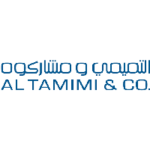-
Is the system of law in your jurisdiction based on civil law, common law or something else?
The legal system of the Republic of Panama is primarily based on civil law tradition, characterised by its reliance on codified laws, structured legal frameworks, and the application of general principles enriched in statute law.
Although it is predominantly a civil law jurisdiction, it has incorporated elements of common law practices, particularly in the maritime, banking, and financial sectors.
-
What are the different types of vehicle / legal forms through which people carry on business in your jurisdiction?
In the Republic of Panama, individuals and legal entities may engage in business activities through various legal vehicles, each governed by specific legislative provisions. The selection of an appropriate business structure depends on factors such as liability, tax treatment, governance, and regulatory requirements.
The principal forms of entities are as follows:
- Corporation (Sociedad Anonima), regulated by Law 32 of 1927.
- Limited Liability Company / (Sociedad de Responsabilidad Limitada), regulated by Law 4 of 2009.
- General Partnership (Sociedad Colectiva), regulated by articles 251-265 of the Commercial Code of Panama.
- Private Interest Foundation (Fundacion de Interes Privado), regulated by Law 25 of 1995 on Private Interest Foundations.
-
Can non-domestic entities carry on business directly in your jurisdiction, i.e., without having to incorporate or register an entity?
For a non-domestic entity to carry on business activities, the same must establish a branch in Panama by registering before the Public Registry of Panama and designate a resident agent (lawyer or law firm). The branch is not a separate legal entity and the non-domestic entity remains fully liable for its obligations. This vehicle is commonly used by multinational corporations seeking a physical presence in Panama.
-
Are there are any capital requirements to consider when establishing different entity types?
Panamanian law generally does not impose strict minimum capital requirements for most business entities. However, certain legal structures and regulated industries have specific capitalisation requirements that must be considered when incorporating a business.
The standard practice for corporations is to establish a nominal capital of ten thousand American dollars (USD10,000.00), although there is no legal requirement.
In regulated industries (e.g. banking, insurance, securities), corporations must meet specific capitalisation requirements as imposed by regulatory authorities.
-
How are the different types of vehicle established in your jurisdiction? And which is the most common entity / branch for investors to utilise?
- Corporation requires at least two (2) incorporators at the time of formation but may later have a single shareholder.
- Limited Liability Company requires a minimum of two (2) and a maximum of fifty (50) partners.
- Private Interest Foundation requires a Founder and a Council. This vehicle although is not entitled to perform commercial activities, the same is widely used for estate planning, asset protection, and wealth management.
Corporations are the most commonly used structure in Panama, due to its flexibility, limited liability, and confidentiality of ownership. It allows foreign ownership and may be used for commercial, investment, or holding purposes.
-
How is the entity operated and managed, i.e., directors, officers or others? And how do they make decisions?
The management of a corporation involves the following key corporate bodies:
Shareholders: They are the ultimate owners of the corporation, and exercise control through the General Shareholders’ Meetings. This body approves major corporate decisions, such as amendments to the articles of incorporation, mergers and liquidation, for example.
Board of Directors: The board is the governing body responsible for the management and administration of the corporation, acting through resolutions. Some powers of the board of directors are establishing corporate policies and strategies, appointing and supervising officers, approving financial statements, recommending dividends and managing budget.
Officers: Responsible for the execution and administration of corporate affairs as directed by the Board of Directors. They manage the day-to-day operations of the company, ensuring compliance with government and regulatory requirements.
Legal Representative: The President is typically the legal representative of the corporation, unless another officer is expressly designated in the articles of incorporation or bylaws.
-
Are there general requirements or restrictions relating to the appointment of (a) authorised representatives / directors or (b) shareholders, such as a requirement for a certain number, or local residency or nationality?
There are no restrictions on residence or nationality imposed on shareholders, directors, officers or legal representatives.
A minimum of three (3) directors are required, but there is no maximum limit. Directors may be individuals or legal entities.
Panamanian law requires the appointment of at least three (3) officers which are the President, Secretary and Treasurer. The same individual may hold multiple positions, except for the roles of President and Secretary, which must be held by different persons. Officers do not necessarily have to be shareholders or directors.
-
Apart from the creation of an entity or establishment, what other possibilities are there for expanding business operations in your jurisdiction? Can one work with trade /commercial agents, resellers and are there any specific rules to be observed?
Apart from registering a corporation in the Panamanian jurisdiction, businesses seeking to expand operations in Panama may utilise alternative commercial arrangements, including trade and commercial agents, distributors, resellers, joint ventures, franchise agreements, foreign branches, employment of independent contractors, e-commerce and digital business expansion, amongst others. Each structure has specific legal and regulatory considerations, particularly under the Commercial Code of the Republic of Panama, and special laws regulating agency and distribution agreements.
Each business model requires careful legal structuring, contractual protections, and regulatory compliance. Panama´s business-friendly legal framework offers multiple avenues for expansion with minimal restrictions, making it an attractive jurisdiction for foreign and domestic business.
-
Are there any corporate governance codes or equivalent for privately owned companies or groups of companies? If so, please provide a summary of the main provisions and how they apply.
Unlike publicly traded companies, privately owned companies do not have a specific corporate governance code imposed by law.
However, these companies can establish their own governance frameworks through their articles of incorporation, and bylaws. Many of them choose to adopt corporate governance practices to enhance transparency and accountability, such as establishing support committees (audit, risk management), implementing codes of conduct (guidelines for directors, officers), and enhancing disclosure practices (voluntary providing financial and operational information to shareholders to build trust and facilitate informed decision-making).
-
What are the options available when looking to provide the entity with working capital? i.e., capital injection, loans etc.
The selection of a funding option depends on the corporate structure, tax implications, and other financial needs of the entity.
The most common option is equity financing, which can be performed through (a) capital injection by means of additional capital contributions by shareholders, (b) capital increase by means of issuance of new shares, and (c) convertible debt to equity by means of convertible notes, for example.
On the other hand, debt financing is widely implemented by means of shareholder loans, corporate financing from financial institutions, third-party loans (private lenders and investors), credit lines and factoring, amongst others.
Finally, hybrid financial structures are also considered such as the issuance of preferred shares (fixed dividend rights or liquidation preferences), bonds, and corporate notes.
-
What are the processes for returning proceeds from entities? i.e., dividends, returns of capital, loans etc.
In Panama, entities can return proceeds to shareholders, investors, or lenders through various legal mechanisms, including dividends, capital returns, loan payments and other distributions. The choice of method depends on corporate structure, tax implications and financial planning considerations. These processes are governed by Law 32 of 1927 on Corporations, the Commercial Code of the Republic of Panama, and tax regulations, namely:
- Dividends: (a) The board of directors approves dividend distributions based on available profits, (b) shareholders’ approval, if required, (c) payment of tax dividend (withholding tax applies: 10% for local-source income, 5% for foreign-source or export-related income, and no withholding for companies under certain special regimes for example multinational headquarters SEM, and (d) distribution to shareholders (paid in cash, stock, or other assets as determined by the board of directors).
- Return of Capital (capital reduction): (a) Shareholders’ meeting approval, (b) amendments to articles of incorporation, (c) payment of shareholders in proportion to their ownership, and (d) tax considerations.
- Loan Repayment to Shareholders or Investors: (a) Execution of Loan Agreement, (b) board of directors’ approval for repayment, (c) loan repayment (principal and interest), and (d) tax treatment (interest payments may be deductible for tax purposes; if the loan is interest-free, it may be reclassified as a capital contribution).
- Share Buybacks: (a) Board of directors’ approval, (b) shareholder consent, if required, (c) payment for repurchased shares (either at par value or a premium), and (d) tax treatment (if shares are repurchased at a premium, the difference may be taxed as a capital gain for the selling shareholder).
- Distribution of Assets In-Kind (non-cash distribution): (a) Board of directors’ approval of which assets are to be distributed, (b) asset valuation (properly valued to avoid disputes and tax issues), and (c) tax considerations (may trigger capital gains taxation if the value has appreciated).
-
Are specific voting requirements / percentages required for specific decisions?
All decisions of the board of directors and the shareholders assembly require at least a simple majority (50% + 1 of voting shares present) unless another percentage is established in the articles of incorporation or the bylaws, as they may set higher voting thresholds than the law requires.
On the other hand, companies listed on the Panama Stock Exchange (BVP) must comply with securities regulations and corporate governance codes, which may impose stricter voting rules.
-
Are shareholders authorised to issue binding instructions to the management? Are these rules the same for all entities? What are the consequences and limitations?
In corporations, shareholders do not have the authority to issue binding day-to-day orders to the directors or officers, on how to run the company´s business. These powers lie with the board of directors unless the law or the company´s articles of incorporation or bylaws give a specific decision to the shareholders. Any shareholder directions to management must therefore be channeled through proper corporate governance mechanism, not by their direct order.
On the other hand, members of a limited liability company enjoy a more hands-on role in governance compared to shareholders of a corporation. While corporations separate ownership and management to an extent, a limited liability companies´ structure is closer to a partnership, giving members greater ability to influence management decisions. They are usually managed by one or more appointed Administrator(s), which have similar functions to a board running the daily business.
-
What are the core employment law protection rules in your country (e.g., discrimination, minimum wage, dismissal etc.)?
Panama has a structured labour system that provides various protections for employees, including rules on discrimination, minimum wage, dismissal, working hours, annual leave benefits, and social security contributions. Below is a summary of key employment protections, namely:
- Discrimination Protections: Employers cannot discriminate based on race, sex, age, religion, disability, nationality, political opinion, or social status.
- Minimum Wage Requirements: Panama does not have a single national minimum wage as they vary by region and economic sector. The same are set by government decree every two (2) years.
- Dismissal Protections: Panama has strong employee protections against unjust dismissal. Severance pay is required unless termination is justified. The same is based on years of service and employees dismissed without a cause receive three-point four (3.4) weeks’ salary per year of service.
- Working Hours and Overtime: The standard working hours are eight (8) hours per day / forty-eight (48) hours per week.
Overtime compensation is as follows:
25% extra for overtime during the day.
50% extra overtime at night (after 6:00 PM).
75% extra for overtime on Sundays or public holidays.
Maternity and Paternity Leave: Women are entitled to be paid maternity leave of fourteen (14) weeks (6 weeks before and 8 weeks after childbirth). Maternity benefits are paid through social security and the employer.
On the other hand, fathers are entitled to three (3) days of paid paternity leave after the birth of a child.
Vacation and Sick Leave: Employees are entitled to thirty (30) calendar days of paid vacation per year. Employers must grant vacation within the first eleven (11) months after earning it.
Employees are also entitled to paid sick leave, which may be paid by the social security fund after the third day. Employers must keep the employee´s position open during medical leave.
Social Security and Employee Benefits: Employers must contribute 12.5% of an employee´s salary to the Social Security Fund, while the employer must contribute a 9.75% of their salary. Contributions cover (a) healthcare benefits, (b) retirement pension, (c) maternity and disability benefits, and (d) workplace accident insurance.
-
On what basis can an employee be dismissed in your country, what process must be followed and what are the associated costs? Does this differ for collective dismissals and if so, how?
The Labour Code of the Republic of Panama establishes specific grounds, procedures, and associated costs for both individual and collective dismissals.
Grounds for individual dismissals can be divided into (a) Justified Causes, such as serious misconduct, repeated negligence, dishonesty, and (b) Unjustified Causes.
The Procedure for individual dismissal is (a) written notification (detailing the specific reasons for termination), (b) documentation (maintain records of any incident or performance issues leading to the dismissal to support the decision if contested), and (c) final payment (settled any owed wages, accrued vacation, and others benefits promptly).
Its associated costs are (a) severance payment (3.4 weeks of salary per year of service for unjustified dismissals), (b) payment in lieu of notice (equivalent to 30 days´ salary if the notice period isn’t provided), and (c) seniority premium (and additional payment of one week´s salary for each year of service).
On the other hand, collective dismissals, often due to economic reasons, are subject to stricter regulations: (a) authorisations (employers must obtain prior approval from the Ministry of Labour to proceed, which involves demonstrating genuine economic, technological, or structural reasons necessitating the layoffs), (b) criteria for selection which prioritises termination of employees with less seniority, of foreign workers before Panamanian nationals, of non-unionised before unionised employees, and protection of employees with special protections such as maternity.
-
Does your jurisdiction have a system of employee representation / participation (e.g., works councils, co-determined supervisory boards, trade unions etc.)? Are there entities which are exempt from the corresponding regulations?
In Panama, employee representation is primarily facilitated through labour unions and company committees. The Labour Code provides the legal framework for these entities, ensuring workers’ rights to organize and participate in labour-related matters.
Panamanian workers have the right to form and join labour unions to protect their collective interest.
In addition to labour unions, the Labour Code mandates the establishment of Company Committees in enterprises with more than 20 employees. These committees serve as a platform for workers to engage with management on workplace issues, promoting cooperative dialogue.
-
Is there a system governing anti-bribery or anti-corruption or similar? Does this system extend to nondomestic constellations, i.e., have extraterritorial reach?
Panama has established a comprehensive legal framework to combat bribery and corruption, primarily through its Criminal Code and related legislation. However, this framework does not extend to extraterritorial actions; it is confined to offenses committed within the Panama jurisdiction. However, a provision in the Criminal Code asserts jurisdiction over certain crimes committed abroad, such as those against humanity, public health, and the national economy.
Another important regulation is Law 6 of 2022 which promotes transparency in public administration and established provision for public access to information, aiming to prevent corrupt practices, and Law 33 of 2013 which creates the National Authority for Transparency and Access to Information, reinforcing mechanisms to combat and enhance transparency with governmental operations.
-
What, if any, are the laws relating to economic crime? If such laws exist, is there an obligation to report economic crimes to the relevant authorities?
Panama has established a comprehensive legal framework to combat economic crimes, encompassing offenses such as financial misconduct, tax evasion, and money laundering. These regulations are primarily enshrined in the Criminal Code and supplemented by specific legislature measures, some of which are listed below:
Financial Crimes: Law 45 of 2003 details some offences such as unlawful possessions, use, or transfer of financial resources; destruction or falsification of financial records; unauthorised financial activities; and the disclosure of confidential information.
Tax Evasion: Law 70 of 2019 criminalises tax evasion, stipulating that intentional acts to defraud the National Treasury, including the use of false documentation or failure to issue legal invoices.
In addition, Panamanian law mandates certain entities to report suspicious activities related to economic crimes, such as (a) Financial Institutions (obliged to implement anti-money laundering measures and report suspicious transactions to the Financial Analyst Unit (UAF)), and (b) Non-Financial Reporting Entities (for example, entities like casinos, real estate agencies, and companies in free zones are required to designate a liaison responsible for reporting to the UAF).
-
How is money laundering and terrorist financing regulated in your jurisdiction?
Law 23 of 2015 introduces measures for the prevention of money laundering, terrorist financing, and the proliferation of weapons of mass destruction. It mandates due diligence procedures, the identification of beneficial owners, and the reporting of suspicious activities by financial institutions and designated non-financial businesses and professions.
Panama´s Financial Analysis Unit (UAF), is responsible for receiving, analysing, and disseminating reports of suspicious financial activities to appropriate authorities.
Also, the Superintendence of Banks of Panama, oversees compliance with anti-money laundering and counter-terrorist regulations within the banking sector.
-
Are there rules regulating compliance in the supply chain (for example comparable to the UK Modern Slavery Act, the Dutch wet kinderarbeid, the French loi de vigilance)?
Panama does not currently have specific legislation akin to the UK´s Modern Slavery Act, or France´s Loi de Vigilance, which mandate comprehensive supply chain due diligence to prevent human rights abuses and environmental harm. However, the country enforces strict domestic laws concerning labour rights and environmental protection.
Major construction projects, for instance, are required to conduct environmental assessments, ensure workers protection, and comply with governmental standards for environmental stewardship.
Additionally, Panama encourages adherence to the international guidelines, such as OECD´s guidelines.
-
Please describe the requirements to prepare, audit, approve and disclose annual accounts / annual financial statements in your jurisdiction.
To comply with the standards and recommendations of international organisations such as the OECD and the Financial Action Task Force (FATF), Panama has been introducing a series of changes to its legal and regulatory framework to enhance its ability to effectively respond to information requests for tax or regulatory purposes. Changes have been introduced gradually, with the latest being implemented between 2020 and 2022. The type of legislation that has been enacted to fulfil these purposes includes the following:
- The implementation of a custodial regime for bearer shares, under which authorised custodians are required to keep identity information on the owners of bearer shares issued by Panamanian corporations;
- Revised anti-money laundering (AML) regulations, under which attorneys acting as registered agents are required to hold detailed records about their clients, including records about final beneficiaries. Based on the relevant regulations, attorneys must corroborate the activities reported by their clients and regularly examine their validity, among other information and verifications that they must conduct;
- The introduction of new accounting requirements. For safekeeping purposes, accounting records and supporting documentation of companies that do not conduct business operations within Panama, including legal entities that only act as investment vehicles, must be provided to the entity’s Panamanian resident agent within four months following the end of each fiscal year. In the event of the dissolution of a Panama registered entity, accounting records and supporting documentation for the last five years prior to the dissolution must be provided to the agent. No later than 30 April of each year, the resident agent must receive the originals or copies of the accounting records of the immediately preceding fiscal year (for calendar-year companies). Failure to provide accounting records and supporting documentation (either in original and/or copy) to the attorney acting as registered agent is subject to the following:
- The submission of a non-compliance report to the office of the Superintendence of Non-Financial Subjects;
- The compulsory resignation of the attorney acting as resident agent of the non-compliant company;
- The suspension of the legal entity’s corporate rights;
- The inability to register any document in the Public Registry and to obtain certificates issued by the Registry;
- The compulsory administrative liquidation of the legal entity; and
- The imposition of non-compliance fines ranging from USD 5,000 to USD 1 million, depending on the seriousness of the offense and the number of prior offences;
- The obligation for Panamanian registered agents to keep updated records of the shareholders and/or beneficial owners of legal entities in which they act as such, with the responsibility of reporting and updating this information on the national system for the registration of beneficial owners adopted by the Superintendence of Non-Financial Subjects. Failure to comply with this obligation is subject to sanctions for both the entity and the resident agent; and
- The suspension of the legal entity’s corporate rights if it fails to pay the annual incorporation fees for three consecutive years or fails to comply with the obligations to report beneficial owners or send accounting information. The effect of this suspension means that no act, document, and/or agreement may be registered in the Panama Public Registry, nor may certifications be issued, except those ordered by a competent authority or requested by third parties in order to assert their rights.
-
Please detail any corporate / company secretarial annual compliance requirements?
Kindly refer to the above question (21).
-
Is there a requirement for annual meetings of shareholders, or other stakeholders, to be held? If so, what matters need to be considered and approved at the annual shareholder meeting?
Panamanian law does not mandate corporations to hold an Annual General Meeting. However, convening this annual meeting is considered a good corporate governance practice.
-
Are there any reporting / notification / disclosure requirements on beneficial ownership / ultimate beneficial owners (UBO) of entities? If yes, please briefly describe these requirements.
Kindly refer to question 21.
-
What main taxes are businesses subject to in your jurisdiction, and on what are they levied (usually profits), and at what rate?
In Panama, businesses are subject to several key taxes, primarily levied on income, consumption, and specific financial transactions. Below is a summary of the main taxes applicable to businesses:
Corporate Income Taxation: Businesses are taxed at a flat 25% on their net taxable income.
Movable Goods and Services Transfer Tax (ITBMS): a value added tax (ITBMS / VAT) of 7% applies to the sale of goods and services. Certain items are tax at increased rates, for example 10% for alcoholic beverages and hotel accommodations, and 15% for tobacco.
Dividend Tax: a 10% withholding tax is applied to dividends distributed from domestic profits. Dividends paid on bearer shares are subject to a 20% withholding tax. A reduced rate of 5% applies to dividends from foreign-source income or export profits.
Capital Gain Tax: are generally taxed at 10%. The purchaser must withhold 5% of the sales price as an advance payment of income tax and remit to the tax authorities.
Notice of Operation Tax (Commercial License Tax): an annual tax of 2% on the company´s gross income, capped at USD60,000.00.
Social Security Contributions: employers must contribute 12.25% of each employee´s salary to social security.
Educational Insurance Tax: employers must contribute 1.5% of each employee´s salary to educational tax.
Municipal Tax: local governments may impose taxes or fees on businesses operating within their jurisdiction.
Stamp Tax: certain legal and commercial documents may be subject to a stamp tax, depending on the nature of the document and transaction.
-
Are there any particular incentive regimes that make your jurisdiction attractive to businesses from a tax perspective (e.g. tax holidays, incentive regimes, employee schemes, or other?)
Panama offers a variety of tax incentives regimes designated to attract and support business investments across multiple sectors. Key incentives include:
The Panama-Pacific Area Agency
The Panama Pacific Area Agency is a governmental agency responsible for assisting and informing investors about the business opportunities in the Panama-Pacific Special Economic Area. This agency provides information on subjects such as the requirements to establish a business in the area; public services; paperwork with different government institutions; contacts with local suppliers needed for the establishment of the business in Panama; and visits to buildings and real estate available in the area.
The Panama-Pacific Special Economic Area has been designed to be the Business Center of the Americas. It is located 40 minutes from Tocumen International airport, 10 minutes from the port of containers at the Pacific, 1 hour form the Colon Free Zone and 20 minutes from Panama City.
Some of the benefits the Special Economic Are Panama-Pacific offers are: fiscal, immigration and labour incentives; simplified procedures for installation and operation, training for employees and special customs regimen.
Inside the offices of the Panama Pacific Special Economic Area Agency, the investor can find what is called an Integrated Systems for Procedures. It avoids visiting different entities, reduces the number of procedures, offers controls that reduce the chances of having the documents returned to the investor for corrections and it provides detailed information on how the different obligations must be fulfilled by the investors.
The incentives provided by Panama Pacific fall into the following categories: special incentive activities, tax incentives, simplified immigration, and special work incentives.
Below, we bring you the complete list of what each of them implies.
Special Incentive Activities
The main objective of these incentives is to promote the attraction of direct investment to Panama.
Headquarters and Services
- Headquarters of multinational companies according to the SEM Law
- Back Office
For companies that are part of a group with 200 million of assets or more, or to companies that provide services to at least 7 subsidiaries.
- Call Center.
- Capture, processing, storage, switching, transmission, and retransmission of data and digital information.
- Link of radio, television, audio, video and / or data signals.
- Research and development of digital resources and applications for internet and intranet networks.
Logistics and distribution
- Logistic and multimodal services.
- Import, export and re-export of goods and sale of merchandise not manufactured in the area.
Maritime and aviation sector
- Maintenance, repair and reconditioning of ships.
- Services related to the aviation industry and airports.
- Sale of products and services to ships, airplanes and their passengers and crew, bound for ports or airports abroad.
High tech manufacturing
- Manufacture of high technology products, components and parts.
- Processing, manufacturing and assembly of products, components and parts, using high-tech processes.
Film industry
- Film industry according to the incentives of Law 36 of 2007.
Tax incentives
Indirect taxes
Companies registered in the area will be exempt from the following indirect taxes:
- Goods Import Tax
- Tax on the transfer of movable property and provision of services (ITBMS / VAT).
- Any tax, tariff, rate, fee or charge regarding the movement or storage of fuel and other hydrocarbons and their derivatives.
- Stamp tax.
- Property tax on land and commercial / industrial improvements, as well as the tax on the transfer of real estate, until December 31, 2029.
- Export tax, re-export of any type of goods.
- Withholding taxes or charges applied to payments to foreign creditors; for financing or refinancing granted to companies in the area and for the financial leasing of equipment.
- Subject to the company’s annual capital tax, at a rate of 0.5% per year up to 50 thousand.
Direct taxes
- Subject to income tax, dividend, complementary, remittances or transfers abroad, except those dedicated to specially incentivized activities.
Single Window
Integrated System of Procedures for the management of permits applicable to the operations of companies.
- National Migration Service
- Ministry of Labor and Labor Development (MITRADEL)
- National Customs Authority
- Social Security Fund (CSS)
- Municipality of Arraiján
- Ministry of Environment
- Arraiján Fire Department
- Ministry of Housing and Land Management (MIVIOT)
- Ministry of Health (MINSA)
- Panamanian Food Safety Authority (AUPSA)
- Land Transit Authority (ATTT)
- Ministry of Agricultural Development (MIDA)
- Ministry of Public Works (MOP)
- Institute of National Aqueducts and Sewers (IDAAN)
- Civil Aviation Authority
Municipal Regime
Tax exemption for manufacturing, import, export, logistics and telecommunications activities.Legal Stability
Guarantee of not being affected by legal changes adopted during the ten (10) years following the registration of the company in the area.
Migratory Incentives: Companies operating within Panama Pacific Special zone could hire foreign workers in more than 15% if they would give special training to Panamanian workers.
There are Special visas for Panama Pacific area workers.
Worker, technician or special visa holders and investor visa holders can import articles for domestic use with a value up to US$100,000.
The visas are extensive to spouse, children who are single and not older than 25 years old and parents older than 62 years old economically dependent of the worker.
Customs regime: Automatic system for merchandise control movement based in the audit of inventories and not in physical controls.
Colon Free Trade Zone:
Located on the outskirts of the city of Colon, on the Atlantic side of the isthmus and only fifty miles from Panama City, the Colon Free Zone offers an area where merchandise may be imported, modified, repacked, and held until its final sale, on a duty-free basis. Trade in the Zone must be carried out strictly on a wholesale basis. Because of its special income tax status and its convenient location, the Colon Free Zone is used by companies from all over the world as a Latin American warehousing center. Light manufacturing and some assembling are also carried out in the Free Zone area.
The Colon Free Zone offers a well trained and experienced (usually bilingual) work force, ample facilities, government cooperation, and easy access to marine and air transport facilities.
Tax laws which apply to Panamanian source income do not apply to Free Zone operations. Income generated by re-exporting activities is exempt from the payment of income tax. Companies operating in the Colon Free Trade Zone, and from any other free trade area, are subject to a fixed dividend tax rate of 5%, applicable on the distribution of profits paid out from export and re-export transaction, as well as on the distribution of domestic income. Entities operating in this, or any other free zone, must have financial statements prepared in accordance with International Financial Accounting Standards and countersigned by a Panamanian Certified Public Accountant.
Other important benefits are (a) immigration benefits for investors, (b) exemption from the annual tax on Business Operation Notice, and (c) legal guarantees for your investment through the Law on the Legal Stability Regime of Investments, among many others.
Multinational Company Headquarters (SEM) Regime: Law No. 41 of 2007, amended by Law 45 of August 10th, 2012 and Law 57 of 2018, establishes incentives for the creation in Panama of Multinational Corporations Headquarters (SEM, for its acronym in Spanish), whose main activities are the technical, financial and/or administrative assistance to companies within the same corporate group and the provision of services to companies of the same group.
Under this modality, it is allowed to establish multinational corporations in Panama with the purpose of having a headquarter that provides support to its affiliates in the region. They may operate as a foreign company registered in Panama or as a Panamanian company, owned by a multinational company. By applying under the activities listed below, the SEM company shall be able to enjoy a series of fiscal, migratory, and labour incentives.
The activities allowed under this law are the following:
- Management and/or administration for operations in a specific or global geographic area of a company of the corporate group. It refers to the services of strategic planning, business development, personnel management and/or training thereof, control of operations and/or logistics.
- The logistics and/or storage of components or parts, required for the manufacture or assembly of products the company manufactures.
- Technical assistance to companies of the corporate group or to customers who have purchased a product or service from the company and, therefore, it is obliged to provide them the support service.
- Technical, financial and/or administrative assistance, as well as other support services, to companies of the same corporate group, including, but not limited to, services of financial management, risk analysis, credit analysis, due diligence, compliance, documentation custody, and filing, data and/or document processing center and corporate treasury services, as well as loans between related companies of the corporate group. It does not include activities that require a license to operate issued by the State through the Superintendency of Banks, the Superintendency of Insurance and Reinsurance, the Superintendency of the Securities Market, or other regulatory entities.
- Corporate group accounting.
- The preparation of blueprints that are part of designs and/or constructions, or part of them, which constitute part of the normal course of business activity of the parent company or any of its subsidiaries.
- Electronic processing of any activity, including consolidations of the corporate group’s operations. This service includes network operations.
- Advice, coordination, and monitoring of marketing and advertising guidelines for goods or services produced by the corporate group.
- The support of operations and research and development of products and services of the corporate group.
- Any other similar service previously approved by the Cabinet Council by a justified resolution provided it is in compliance with the provisions of the Law.
Outsourcing:
It is important to take into account that the main activity or activities can be performed, in whole or in part, through resources provided by suppliers (outsourcing), as long as the outsourced activity be performed in Panama and the mechanisms to exercise monitoring and supervision of the activity in Panama be maintained.
I. Fiscal
Fiscal benefits and obligations of corporations which obtain a SEM License:
- Companies holding a SEM license must pay the income tax in the Republic of Panama on the net taxable income arising from the services rendered, at a rate of 5%. They shall settle and pay the income tax, through the annual tax income return, and may include within their deductible expenses, the expenses incurred in concept of labour remunerations of all their employees, which shall proceed even when the employee, recipient of the salary, is exempted from the income tax. The amount that the company has actually paid in that concept or analogous abroad may also apply as income tax credit. When applying this credit, the company shall pay at least 2% of the net taxable income generated in the Republic of Panama, as income tax.
- All legal or natural persons that carry out transactions with related parties that are SEM companies, shall be subject to the Transfer Pricing System in accordance with the provisions of article 762-D of the Tax Code and comply with the filing of Form 930.
- Transfer Tax on Personal Property and Services (ITBMS, for its acronym in Spanish / VAT). Due to the fact that these are exporting services, the same shall not cause ITBMS, provided that they be rendered to entities of the Corporate Group abroad, which do not generate taxable income within the Republic of Panama.
- Exemption of dividend payment, supplementary tax, and tax on branches, regardless that they be from local, foreign or exempt source.
- They are not subject to the use of tax equipment, nevertheless, they must document their activities through invoices or documents equivalent which allow the Directorate General of Revenues to have proper control, registration, accounting, and supervision of the transactions performed.
- No obligation to obtain a Notice of Operation for the rendering of the services established in the SEM Law.
II. Immigration
Incentives for Foreign Executives, holders of SEM visas:
- Salaries and other labour remunerations, including salary in kind received by persons holding a SEM Permanent Personnel Visa, are exempt from income tax and social security contributions, educational insurance provided that the salaries and labour remunerations are paid, assumed, and recognized as personnel expenses in the accounting of the company with SEM License.
- Exemption of Importing Tariff for household goods when the employee relocates for the first time to the Republic of Panama. The National Customs Authority has established the amount of twenty-five thousand dollars (US$25,000.00), legal currency of the United States of America as maximum for the application of said exemption. The interested party may bring said household goods within the three (3) months prior to his arrival or up to six (6) months after his entry to the country.
The SEM Law creates new visas specifically for foreign employees hired by the SEM company. The kinds of visas are:
Visas for SEM Permanent Personnel:
These shall be granted to the employees of an administrative-executive level. The same shall have validity up to 5 years, renewable for the same term, except for those cases in which the labour contract establishes a shorter term. The holders of this visa shall not require work permits and may renew this visa for an indefinite term.
Visas for Dependents of SEM Permanent Personnel:
For their spouses or common-law couples living for a minimum of five (5) years in conditions of stability and singularity, underage children, and children under twenty-five (25) years which are students, as well as the parents of said personnel, who shall remain in Panama under the responsibility of SEM´s personnel. They shall have the same term as that of the SEM´s personnel. The salaries and other labour remunerations, including the salary in kind, shall be considered exempt from income tax, social security, and education insurance contributions, insofar as said salaries and labour remunerations are paid, assumed, and recognized as personnel expense of in the accounting of the SEM company.
Definite Residence for SEM Permanent Personnel:
The foreign personnel that had worked for any SEM company, after the 5-year term of their SEM Permanent Personnel visa had elapsed, may opt for a definite residence. The Permanent Personnel that obtain the definitive residence shall be subject to the payment of the income tax and the social security and education insurance contributions.
Visas for SEM Temporary Personnel:
These visas shall be granted for a period not greater than 3 months for employees that have to come to Panama for any activity related to SEM. Like the visa for SEM Permanent Personnel, it does not need a labour permit.
III. Labour
Companies covered by a SEM License may hire trusted foreign workers to fill senior and mid-level management positions. This is understood as those employees who perform management, inspection, or representation services for the company. Such foreign personnel must comply with the provisions of Article 17 of the Labor Code, with respect to companies whose transactions are developed, consummated, or be effective abroad.
Any foreigner with the status of a dependent of a foreign worker under a visa or residence permit from the Multinational Corporation Headquarter may work in the Republic of Panama, provided that he or she meets the necessary conditions to process a work permit in one of the existing or recognized categories by Panama. These permits must be processed at the Immigration Office of the Multinational Corporations Headquarters or the One-Stop Investment Counter.
Dependents who obtain a work permit and work in Panama shall be subject to the payment of income tax, and social security and educational insurance contributions for wages and other remuneration received.
SEM companies must seek technological exchange, and for such purposes, may hire foreign employees of administrative levels, as well as support or related services personnel with proven academic capacity.
Petroleum Free Zones:
Since the early 90’s, Panama has promoted itself as a hub for Crude-Oil and By-Products storage.
Companies operating in these free zones are exempt from Income Taxes on income derived by selling crude-oil and by-products abroad or to vessels transiting the Panama Canal.
Regarding dividends, companies are required to withhold a 5% on dividends paid. If a company does not declare dividends in a particular year, it must pay a “retained earnings tax” (considered an advance dividend tax/complementary tax), to a rate of 2%.
-
Are there any impediments / tax charges that typically apply to the inflow or outflow of capital to and from your jurisdiction (e.g., withholding taxes, exchange controls, capital controls, etc.)?
Kindly refer to question 25.
-
Are there any significant transfer taxes, stamp duties, etc. to be taken into consideration?
Kindly refer to question 25.
-
Are there any public takeover rules?
Although Panama does not have a dedicated set of public takeover rules, mergers and acquisitions transactions, specially involving publicly held companies, are regulated through a combination of corporate securities and antitrust laws, which aim to ensure transparency, protect shareholders rights and maintain competitive markets.
-
Is there a merger control regime and is it mandatory / how does it broadly work?
Panama has a merger and acquisition control regime, but it is not mandatory. Instead, it operates under a voluntary notification system governed by Law 45 of 2007 and enforced by the Authority of Consumer Protection and Defense of Competition (ACODECO). If not notified in advance, ACODECO can later investigate and challenge mergers or acquisitions within 3 years if they significantly harm market competition.
ACODECO regulates economic concentrations, which include mergers, acquisitions, and joint ventures.
Companies can voluntarily submit request to ACODECO to assess whether the above-mentioned transactions would significantly restrict or hinder competition. ACODECO has 60 calendar days to approve or deny or impose conditions on the transaction.
If ACODECO does not issues a decision within 60 days, the transaction is automatically approved. If ACODECO rejects the transaction, companies may appeal the decision.
On the other hand, if a transaction was not notified, ACODECO can retroactively investigate and challenge the transaction within 3 years if it results in anti-competitive effects.
Certain industries require additional transaction requirements, for example (a) banking sector (requires approval from the Superintendency of Banks), (b) insurance and reinsurance Companies (requires approval from the Superintendency of Insurance), and (c) telecommunication sector (subject to Public Services Authority), amongst others.
-
Is there an obligation to negotiate in good faith?
Law 45 of 2007 does not explicitly impose an obligation to negotiate in good faith. However, general principles of Panamanian contract law require parties to act in good faith during contractual negotiations and execution. This principle is fundamental and applies broadly across various legal contexts, ensuring that parties engage honestly and fairly in their dealings.
-
What protections do employees benefit from when their employer is being acquired, for example, are there employee and / or employee representatives’ information and consultation or co-determination obligations, and what process must be followed? Do these obligations differ depending on whether an asset or share deal is undertaken?
Panamanian law mandates that both employees and labour unions be notified of an employer substitution resulting from mergers and acquisitions. However, while they must be informed, they do not have the legal authority to prevent or veto the transaction.
There are no explicit requirements for employers to engage in consultation or co-determination processes with employees or their representatives during mergers and acquisitions.
-
Please detail any foreign direct investment restrictions, controls or requirements? For example, please detail any limitations, notifications and / or approvals required for corporate acquisitions.
Panama actively encourages foreign direct investment and maintains open and attractive environment for foreign investors, based on principles of “openness to foreign ownership and equal treatment” (foreign investors receive the same rights and obligations as domestic investors).
However, retail trades (foreigner are restricted from engaging in retail trade activities), and media ownership (ownership of medias is limited to Panamanian citizens to preserve national, cultural, and informational sovereignty), have specific restrictions.
Generally, there are no prior approval requirements for foreign investments or corporate acquisitions or mergers in Panama. Foreign investors can establish or acquire Panamanian entities without the need of special permissions.
-
Does your jurisdiction have any exchange control requirements?
Panama maintains a highly open financial system characterised by the absence of exchange controls.
-
What are the most common ways to wind up / liquidate / dissolve an entity in your jurisdiction? Please provide a brief explanation of the process.
In Panama, the dissolution and liquidation of a corporation can occur through (a) voluntary dissolution by shareholders agreement, (b) dissolution due to expiration or fulfillment of corporate purposes, and (c) judicial dissolutions.
The general steps in the dissolution and liquidation process, are as follows:
- The entity’s compliance with obligations is up to date and it in compliance with all governmental obligations, including taxes and social security contributions.
- Shareholders’ resolution approving the dissolution, and the appointment of a liquidator.
- Notarisation and Registration the dissolution agreement before the Public Registry of Panama.
- Publish the dissolution notice in a national newspaper.
- The liquidator settles debts, collective receivables, and distributes remaining assets.
- Notification relevant agencies of the dissolution, such as tax (DG) and social security (CSS) authorities.
Panama: Doing Business In
This country-specific Q&A provides an overview of Doing Business In laws and regulations applicable in Panama.
-
Is the system of law in your jurisdiction based on civil law, common law or something else?
-
What are the different types of vehicle / legal forms through which people carry on business in your jurisdiction?
-
Can non-domestic entities carry on business directly in your jurisdiction, i.e., without having to incorporate or register an entity?
-
Are there are any capital requirements to consider when establishing different entity types?
-
How are the different types of vehicle established in your jurisdiction? And which is the most common entity / branch for investors to utilise?
-
How is the entity operated and managed, i.e., directors, officers or others? And how do they make decisions?
-
Are there general requirements or restrictions relating to the appointment of (a) authorised representatives / directors or (b) shareholders, such as a requirement for a certain number, or local residency or nationality?
-
Apart from the creation of an entity or establishment, what other possibilities are there for expanding business operations in your jurisdiction? Can one work with trade /commercial agents, resellers and are there any specific rules to be observed?
-
Are there any corporate governance codes or equivalent for privately owned companies or groups of companies? If so, please provide a summary of the main provisions and how they apply.
-
What are the options available when looking to provide the entity with working capital? i.e., capital injection, loans etc.
-
What are the processes for returning proceeds from entities? i.e., dividends, returns of capital, loans etc.
-
Are specific voting requirements / percentages required for specific decisions?
-
Are shareholders authorised to issue binding instructions to the management? Are these rules the same for all entities? What are the consequences and limitations?
-
What are the core employment law protection rules in your country (e.g., discrimination, minimum wage, dismissal etc.)?
-
On what basis can an employee be dismissed in your country, what process must be followed and what are the associated costs? Does this differ for collective dismissals and if so, how?
-
Does your jurisdiction have a system of employee representation / participation (e.g., works councils, co-determined supervisory boards, trade unions etc.)? Are there entities which are exempt from the corresponding regulations?
-
Is there a system governing anti-bribery or anti-corruption or similar? Does this system extend to nondomestic constellations, i.e., have extraterritorial reach?
-
What, if any, are the laws relating to economic crime? If such laws exist, is there an obligation to report economic crimes to the relevant authorities?
-
How is money laundering and terrorist financing regulated in your jurisdiction?
-
Are there rules regulating compliance in the supply chain (for example comparable to the UK Modern Slavery Act, the Dutch wet kinderarbeid, the French loi de vigilance)?
-
Please describe the requirements to prepare, audit, approve and disclose annual accounts / annual financial statements in your jurisdiction.
-
Please detail any corporate / company secretarial annual compliance requirements?
-
Is there a requirement for annual meetings of shareholders, or other stakeholders, to be held? If so, what matters need to be considered and approved at the annual shareholder meeting?
-
Are there any reporting / notification / disclosure requirements on beneficial ownership / ultimate beneficial owners (UBO) of entities? If yes, please briefly describe these requirements.
-
What main taxes are businesses subject to in your jurisdiction, and on what are they levied (usually profits), and at what rate?
-
Are there any particular incentive regimes that make your jurisdiction attractive to businesses from a tax perspective (e.g. tax holidays, incentive regimes, employee schemes, or other?)
-
Are there any impediments / tax charges that typically apply to the inflow or outflow of capital to and from your jurisdiction (e.g., withholding taxes, exchange controls, capital controls, etc.)?
-
Are there any significant transfer taxes, stamp duties, etc. to be taken into consideration?
-
Are there any public takeover rules?
-
Is there a merger control regime and is it mandatory / how does it broadly work?
-
Is there an obligation to negotiate in good faith?
-
What protections do employees benefit from when their employer is being acquired, for example, are there employee and / or employee representatives’ information and consultation or co-determination obligations, and what process must be followed? Do these obligations differ depending on whether an asset or share deal is undertaken?
-
Please detail any foreign direct investment restrictions, controls or requirements? For example, please detail any limitations, notifications and / or approvals required for corporate acquisitions.
-
Does your jurisdiction have any exchange control requirements?
-
What are the most common ways to wind up / liquidate / dissolve an entity in your jurisdiction? Please provide a brief explanation of the process.
























